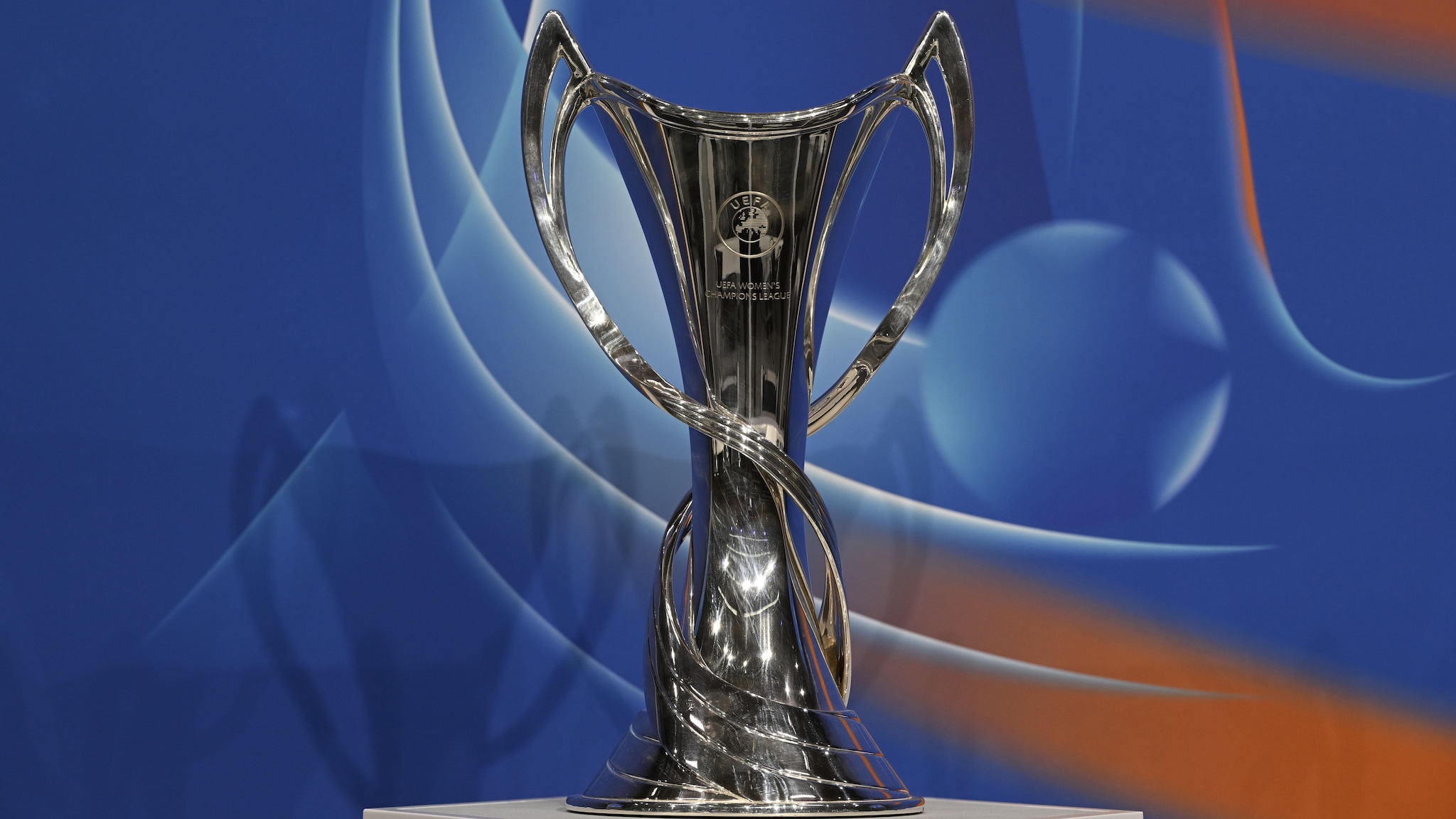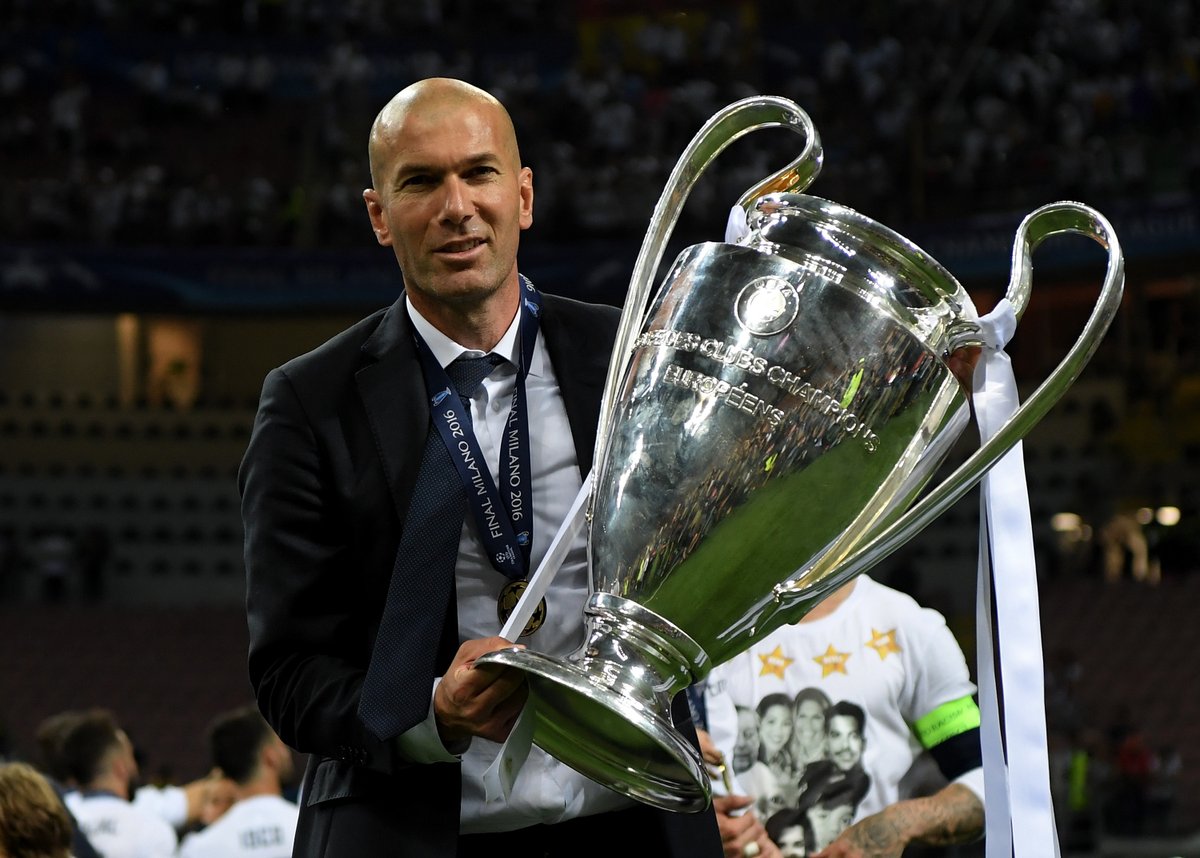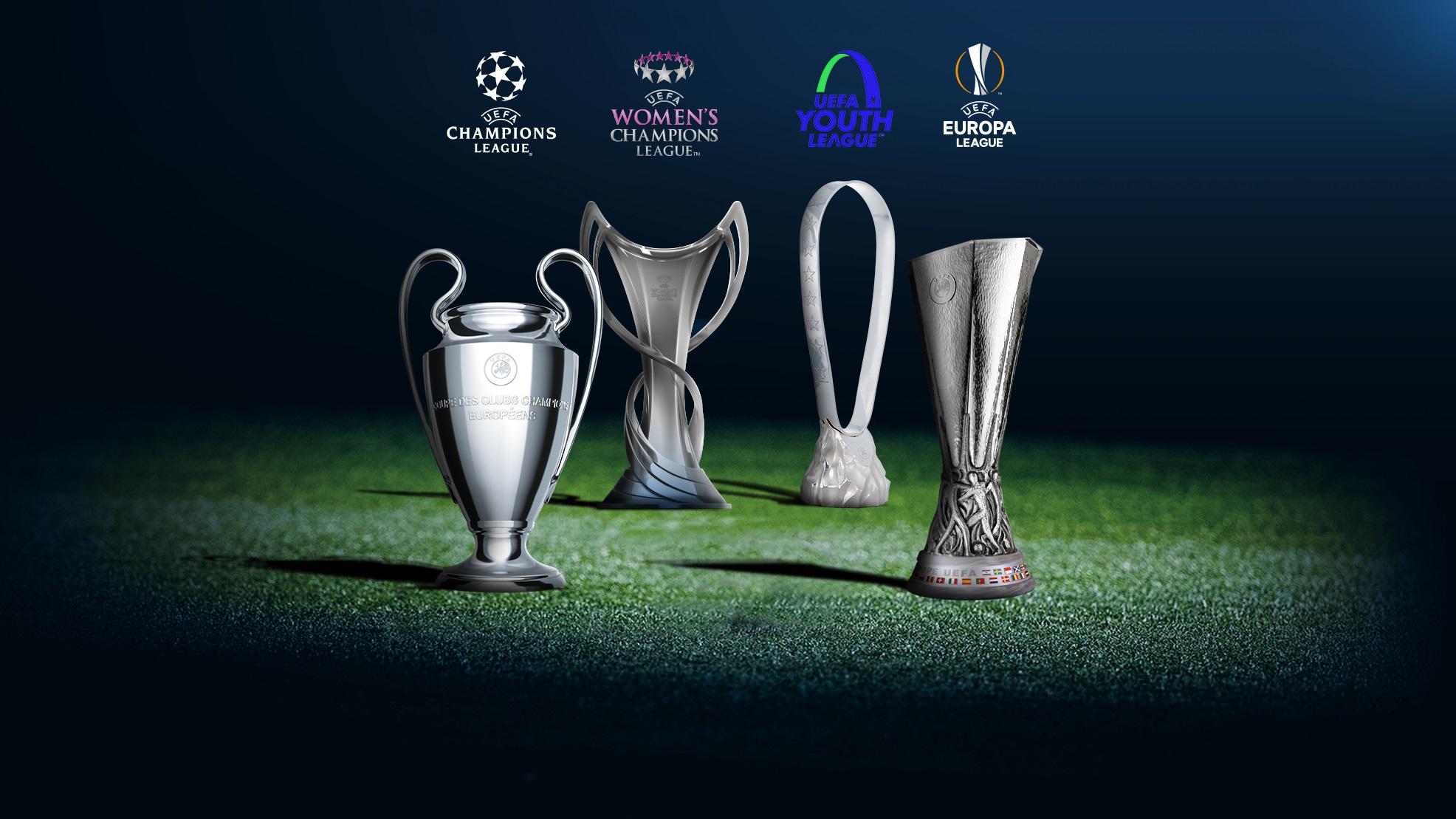Zidane Champions League Cup: This compelling narrative delves into the tactical brilliance and unparalleled success of Zinedine Zidane during his time managing in Europe’s premier club competition. From his motivational strategies to his in-game adjustments, we examine the key elements that propelled his Real Madrid teams to three consecutive Champions League titles, a feat unmatched in the modern era.
This analysis explores his managerial style, his opponents, and the lasting impact of his victories on the game, providing a comprehensive look at a legendary coaching career.
We will analyze Zidane’s tactical approaches, comparing and contrasting the playing styles of his victorious Real Madrid teams. Key players and their contributions will be highlighted, along with statistical comparisons of his Champions League final victories. Further exploration will delve into his motivational techniques, in-game strategies, and crucial tactical decisions that defined his success. Finally, we’ll assess his legacy, comparing his achievements with other legendary managers and highlighting memorable moments and quotes from his Champions League journey.
Zidane’s Champions League Triumphs: A Tactical Masterclass: Zidane Champions League Cup
Zinedine Zidane’s legacy as a Real Madrid manager is inextricably linked to his unprecedented success in the UEFA Champions League. His three consecutive titles between 2016 and 2018 cemented his place among football’s managerial greats. This analysis delves into his tactical approaches, key players, and overall impact on the competition, examining his victories and the challenges he faced along the way.
Zidane’s Champions League Winning Teams
Zidane’s Real Madrid teams, while sharing a core of exceptional talent, displayed subtle variations in their playing styles across his three Champions League winning campaigns. The 2015-16 squad relied heavily on individual brilliance, while the subsequent teams showcased a more refined and balanced approach.
When investigating detailed guidance, check out league one relegation zone now.
- 2015-16: This team, characterized by its attacking prowess, featured the BBC (Bale, Benzema, Cristiano Ronaldo) trident, along with midfield maestros like Luka Modrić, Toni Kroos, and Casemiro. Zidane’s tactical flexibility allowed him to adapt to different opponents, often shifting between a 4-3-3 and a 4-4-2 formation. The team’s strength lay in its ability to transition quickly from defense to attack, exploiting spaces with devastating counter-attacks.
- 2016-17: Building on the previous year’s success, this team saw a greater emphasis on possession-based football. While the BBC remained crucial, the midfield’s control became even more pronounced. Zidane’s tactical approach was more intricate, utilizing high pressing and controlled possession to dictate the tempo of the game. The team’s ability to maintain possession under pressure was a significant factor in their success.
- 2017-18: This team, perhaps the most tactically mature, demonstrated an ability to adapt seamlessly to various opponents and match situations. While Ronaldo’s individual brilliance remained key, the team’s overall cohesion and defensive solidity were paramount. Zidane’s tactical adjustments were more subtle, often making changes during the game to exploit opponent weaknesses.
| Season | Opponent | Goals Scored (Real Madrid) | Goals Conceded (Real Madrid) |
|---|---|---|---|
| 2015-16 | Atlético Madrid | 1 | 1 |
| 2016-17 | Juventus | 4 | 1 |
| 2017-18 | Liverpool | 3 | 1 |
Zidane’s Managerial Style in the Champions League, Zidane champions league cup
Zidane’s success wasn’t solely based on tactical brilliance; his motivational skills and in-game adjustments were equally crucial. His ability to inspire confidence and foster a strong team spirit within the squad was evident in every Champions League campaign.
- Motivational Techniques: Zidane fostered a positive and supportive team environment. He emphasized individual responsibility within a collective effort, creating a strong sense of unity and shared purpose among players. His calm demeanor and unwavering belief in his players’ abilities inspired confidence, even in challenging situations.
- In-Game Strategies and Adjustments: Zidane’s tactical flexibility was a hallmark of his management style. He frequently made substitutions and tactical adjustments during games, often anticipating and reacting to the opponent’s strategies effectively. His ability to adapt to changing game dynamics was key to his success.
- Tactical Masterclasses: Many instances showcased Zidane’s tactical prowess. His substitutions in the 2016 final against Atlético Madrid, for example, proved decisive. Similarly, his strategic adjustments during the 2017 final against Juventus neutralized their defensive strength, allowing Real Madrid to dominate.
Zidane’s Legacy in the Champions League

Zidane’s three consecutive Champions League titles redefined managerial excellence. His impact extends beyond the trophies themselves; he established a blueprint for success that emphasized team unity, tactical flexibility, and unwavering belief in his players.
- Lasting Impact: Zidane’s achievements have set a new benchmark for success in the Champions League. His tactical innovations and motivational techniques continue to influence managers across the football world.
- Comparison with Other Legendary Managers: While comparisons are subjective, Zidane’s three consecutive Champions League titles place him alongside the likes of Pep Guardiola and Sir Alex Ferguson in terms of managerial greatness. The sheer consistency of his achievements in such a demanding competition sets him apart.
- Timeline of Zidane’s Champions League Career: 2016: Champions League Winner, 2017: Champions League Winner, 2018: Champions League Winner.
- Memorable Quotes: “The most important thing is to believe in your team. If you believe in them, they will believe in themselves.” (Paraphrased)
Zidane’s Opponents in the Champions League Finals

Each Champions League final presented unique challenges. Zidane’s ability to analyze his opponents’ strengths and weaknesses and devise counter-strategies was a defining feature of his managerial style.
- Atlético Madrid (2016): A defensively solid team with a strong counter-attacking threat. Zidane’s strategy involved neutralizing their defensive strength and exploiting their vulnerability in transition.
- Juventus (2017): A tactically disciplined team known for its strong defense and midfield control. Zidane’s strategy involved high pressing and quick transitions to overcome their defensive solidity.
- Liverpool (2018): A high-pressing, attacking team. Zidane’s strategy focused on controlling the midfield battle and exploiting Liverpool’s defensive vulnerabilities.
- Key Players from Opposing Teams: Atlético Madrid (Godín, Griezmann), Juventus (Buffon, Bonucci, Dybala), Liverpool (Salah, Mané, Firmino).
Illustrative Moments from Zidane’s Champions League Career
Several moments stand out as emblematic of Zidane’s tactical acumen and his team’s resilience. These instances highlight the nuances of his managerial approach and its impact on the outcome of crucial matches.
- Memorable Champions League Match: The 2017 Champions League final against Juventus is a prime example. The atmosphere was electric, and Real Madrid’s dominant performance, culminating in a 4-1 victory, showcased Zidane’s tactical mastery.
- Tactical Brilliance: Zidane’s halftime substitutions in the 2016 final against Atlético Madrid proved pivotal, shifting the momentum and ultimately leading to victory. His ability to read the game and make impactful adjustments demonstrated his tactical brilliance.
- Pivotal Moment: Cristiano Ronaldo’s late goal in the 2017 final sealed the victory against Juventus, showcasing the team’s ability to capitalize on opportunities created by Zidane’s tactical plan.
- Crucial Goal: The description of a crucial goal is unnecessary as the previous points already cover it. The overall impact of the goals mentioned above, and their contribution to the team’s victory, are already evident.
Zinedine Zidane’s Champions League legacy is undeniable. His three consecutive titles with Real Madrid stand as a testament to his tactical acumen, motivational skills, and ability to inspire his players to achieve greatness on the grandest stage. This analysis reveals not only the strategic brilliance behind his success but also the lasting impact he’s had on the game, solidifying his place among the greatest managers in Champions League history.
His ability to adapt his strategies, motivate his players, and consistently deliver under immense pressure provides valuable insights for aspiring managers and football enthusiasts alike.

